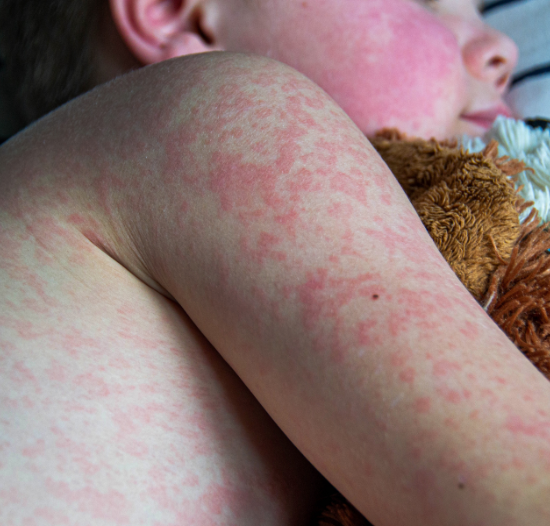Children in England will, for the first time, be offered a free vaccine against chickenpox from January 2026, in what ministers are calling a major step to strengthen childhood immunisation.
The move means the varicella jab, currently available only privately at around £150, will be included in the NHS childhood vaccination programme and given as part of a new four-in-one injection protecting against measles, mumps, rubella and chickenpox (MMRV).
The combined shot will be administered at 12 and 18 months, replacing the existing MMR schedule.
Health officials expect the rollout to cover about half a million children annually, sparing families the disruption that often comes with the illness.
Read Also: Herpes virus may raise alzheimer’s risk, study suggests antivirals could help
While chickenpox is usually mild, it can occasionally trigger severe complications such as bacterial infections, pneumonia, or inflammation of the brain.
“This is a win for parents, for the economy and for children,” said Care Minister Stephen Kinnock, noting that many working families are forced to take time off when their child develops the condition.
The NHS currently spends an estimated £15 million a year treating chickenpox cases, while the wider economic cost in lost working days is thought to be around £24 million.
Officials believe the new programme will ease pressure both on health services and the economy.
Dr Gayatri Amirthalingam of the United Kingdom Health Security Agency (UKHSA) said the jab would “help prevent what is for most a nasty illness and for those who develop severe symptoms, it could be a lifesaver.”
The decision follows advice from the Joint Committee on Vaccination and Immunisation in late 2023 and brings England into line with countries including Germany, the United States, Canada and Australia, where the varicella vaccine is already routine.
The rollout comes at a time when England is struggling with declining vaccine uptake.
Coverage of the MMR jab has fallen to its lowest level in over a decade, with only 91.9% of five-year-olds receiving a first dose last year, below the 95% threshold recommended by the World Health Organization to prevent outbreaks.
Kinnock admitted vaccine hesitancy had been fuelled by misinformation since the Covid pandemic, but said targeted campaigns would aim to rebuild public trust.
Amanda Doyle, NHS England’s national director for primary care, said preparations were underway to ensure a smooth introduction.
“This is a hugely positive moment for families as we expand our vaccination programme,” she said.
“Working with GP surgeries and vaccination teams across the country, we will ensure children are protected against chickenpox and other highly contagious viruses from the new year.”



